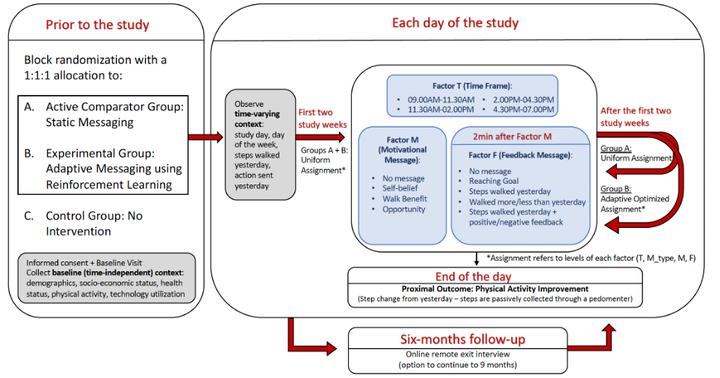Daily Motivational Text Messages to Promote Physical Activity in University Students: Results From a Microrandomized Trial
 Image credit: Unsplash
Image credit: Unsplash
Abstract
Low physical activity is an important risk factor for common physical and mental disorders. Physical activity interventions delivered via smartphones can help users maintain and increase physical activity, but outcomes have been mixed. Here we assessed the effects of sending daily motivational and feedback text messages in a microrandomized clinical trial on changes in physical activity from one day to the next in a student population. We included 93 participants who used a physical activity app, DIAMANTE for a period of 6 weeks. Every day, their phone pedometer passively tracked participants’ steps. They were microrandomized to receive different types of motivational messages, based on a cognitive-behavioral framework, and feedback on their steps. We used generalized estimation equation models to test the effectiveness of feedback and motivational messages on changes in steps from one day to the next. Sending any versus no text message initially resulted in an increase in daily steps (729 steps, p = .012), but this effect decreased over time. A multivariate analysis evaluating each text message category separately showed that the initial positive effect was driven by the motivational messages though the effect was small and trend-wise significant (717 steps; p = .083), but not the feedback messages (−276 steps, p = .4). Sending motivational physical activity text messages based on a cognitive-behavioral framework may have a positive effect on increasing steps, but this decreases with time. Further work is needed to examine using personalization and contextualization to improve the efficacy of text-messaging interventions on physical activity outcomes.